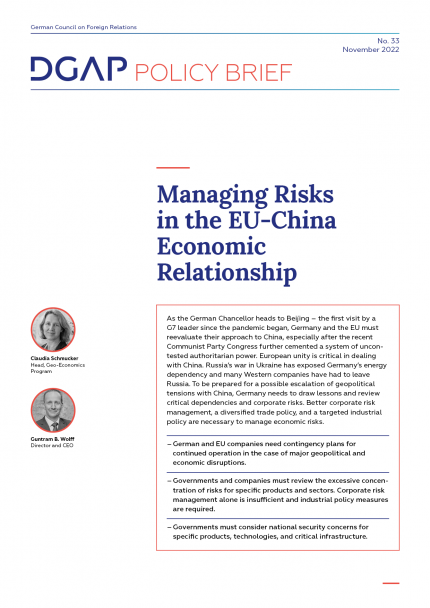As the German Chancellor heads to Beijing – the first visit by a G7 leader since the pandemic began, Germany and the EU must reevaluate their approach to China, especially after the recent Communist Party Congress further cemented a system of uncontested authoritarian power. European unity is critical in dealing with China. Russia’s war in Ukraine has exposed Germany’s energy dependency and many Western companies have had to leave Russia. To be prepared for a possible escalation of geopolitical tensions with China, Germany needs to draw lessons and review critical dependencies and corporate risks. Better corporate risk management, a diversified trade policy, and a targeted industrial policy are necessary to manage economic risks.

DGAP Policy Brief No. 33, November 01, 2022, 10 pp.
| German and EU companies need contingency plans for continued operation in the case of major geopolitical and economic disruptions. |
| Governments and companies must review the excessive concentration of risks for specific products and sectors. Corporate risk management alone is insufficient and industrial policy measures are required. |
| Governments must consider national security concerns for specific products, technologies, and critical infrastructure. |
